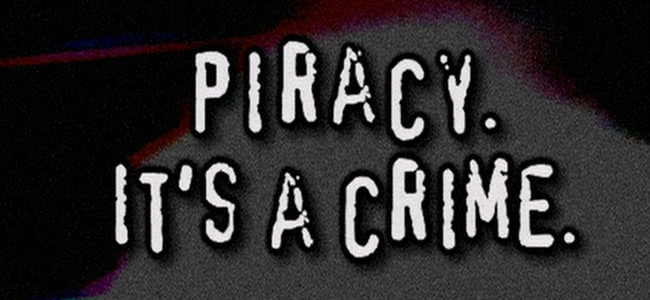New research commissioned by the Australasian Performing Right Association (APRA) finds that Aussies who download music illegally are far more likely to be affluent and have a good education than those who choose to obtain their their music by legal means instead.
The APRA-led survey spoke to more than 1000 Australian adults aged 18-plus, with 21 percent admitting to downloading entertainment material such as music illegally. But a closer look at the demographics of those that confirmed they stole music draws some interesting correlations between income, education, and the propensity to steal.
30 percent of those that admitted to stealing music, movies, television shows and more also live in a household with an income above $100K, well above the national average reported The Australian. Interestingly, as the household income was lowered so was the likelihood that its members were engaged in illegal downloading.
Just 27 percent of illegal downloaders lived in households that earn between $60-$100K, 18 percent between $40-60K, and only 14 percent under $40K. In general, the survey shows that the higher a person’s income the more likely it is that he or she engages in unauthorized file-sharing.
In addition, there was a correlation between illegal downloading and education level, with the higher the person was educated the more likely they were to be illegally downloading music and other entertainment resources. In the survey, 17 per cent of illegal downloaders had graduated high school, 21 per cent had obtained a TAFE or trade qualification, and 25 per cent had a university education.
The obvious conclusion here is that young rich people prefer to steal music.Unsurspringly, younger people were more likely than their older counterparts to illegally download, with a whopping 44% of illegal downloaders being aged between 18 and 30.
So what does the survey really tell us? The obvious conclusion here is that young rich people prefer to steal music. Or that the smarter someone is, the less likely they are to see a problem with illegal downloading. Or perhaps people are richer because they spend their money in other ways than on music and film.
Adding the results of this survey to others also paints an interesting picture. A study by the The American Assembly found that “the biggest music pirates are also the biggest spenders on recorded music”.
But there may be other answers. Those from more affluent backgrounds could have wider access to the tools available to download music illegally. They may also be more engaged with music, film, or television driving them to download more material.
Metropolitan respondents were also found to pirate more material than their rural counterparts, which also could be due in part to limited access to broadband internet in more rural areas. Increased access to broadband has already become a concern of ARIA and their related bodies overseas, with the IFPI emphasising that the roll-out of Australia’s National Broadband network would enable music piracy.
“Australia does not have a legislative ‘graduated response’ process, nor does it have a process to facilitate site blocking,” said IFPI Chief Executive Frances Moore, something that will remain an issue when 90% of Australia’s population are gifted high speed broadband internet in the next two years as part of the Federal Governmnet’s installation of the NBN.
The IFPI’s concerns were echoed by ARIA CEO Dan Rosen, indicating that Australia was still one of the worst illegal downloaders per capita in the world, commenting that copyright protection and the interests of artists needed to reman a priority, estimating that “between 30 and 40 per cent” of internet users were still accessing “unauthorised websites,” over legitimate music sources such as iTunes or streaming services like Spotify and Deezer.
ARIA and IFPI will also no doubt be startled by the survey which showed a particular callousness towards content creators. Seven percent of all respondents disagreed the work of musicians, authors, filmmakers and other artists should be paid for if the creative work were made available for sale in a retail store, rising to a disturbing 13 per cent among illegal downloaders.
That figure increased to 8 per cent (and 15 per cent for downloaders) if the works were for sale on the internet.
Despite the continuing debate over illegal downloading, as with any business, buying music is still an integral part of the industry – besides another recent report suggests that music is cheaper to purchase now than it’s ever been.
However, those predicting an industry apocalypse based on the rate of illegal downloads, as the record labels would you have you believe (which may not be altogether accurate anyway), many may find comfort in the fact that file-sharers are still willing to pay for music.
This is backed up by evidence that digital sales have been rising throughout the year and are set to keep climbing. Earlier in the month, it looked as if digital album sales in the US were set to break records whilst digital downloads had already outstripped physical sales in the UK for the first time.

































